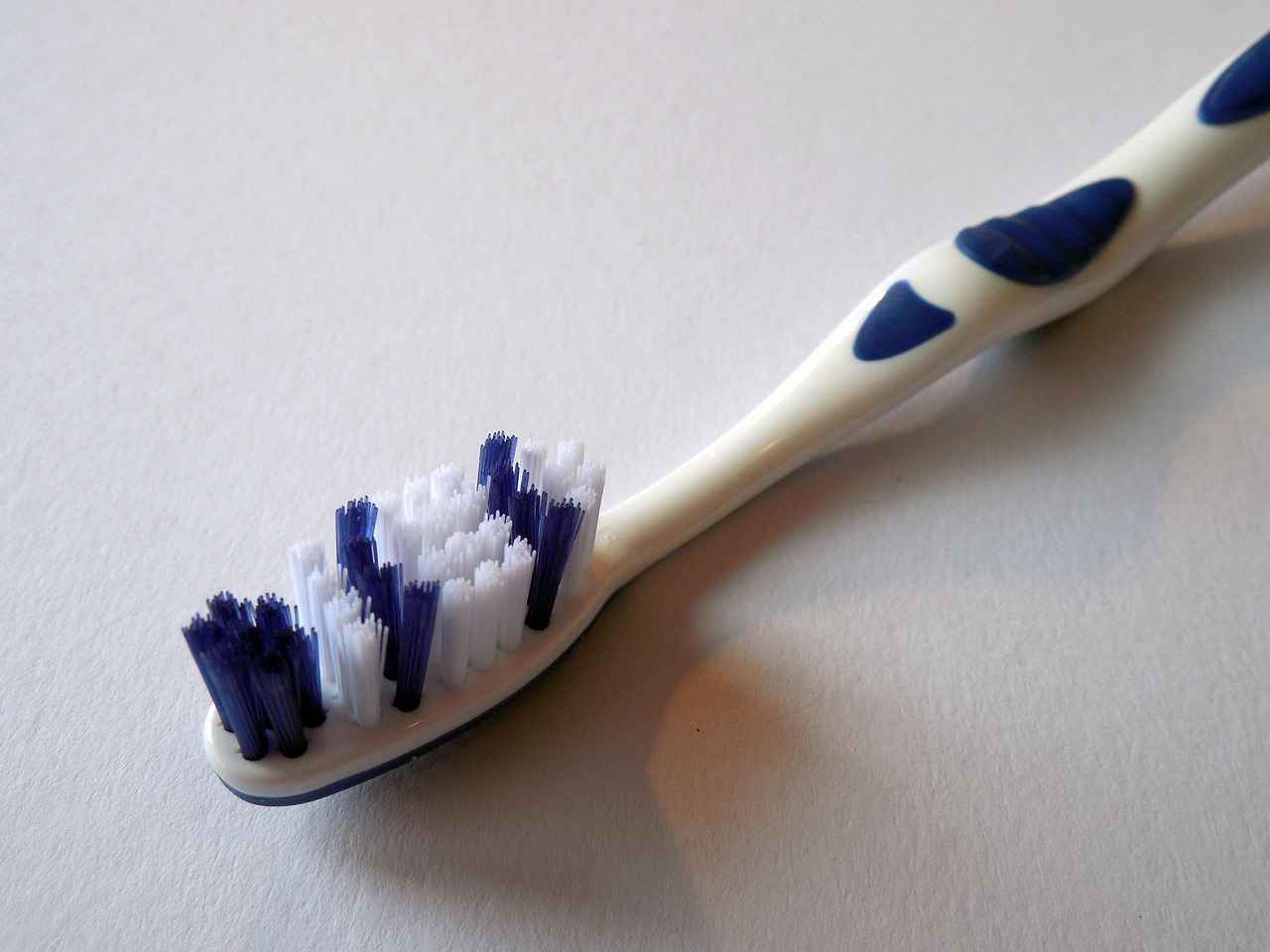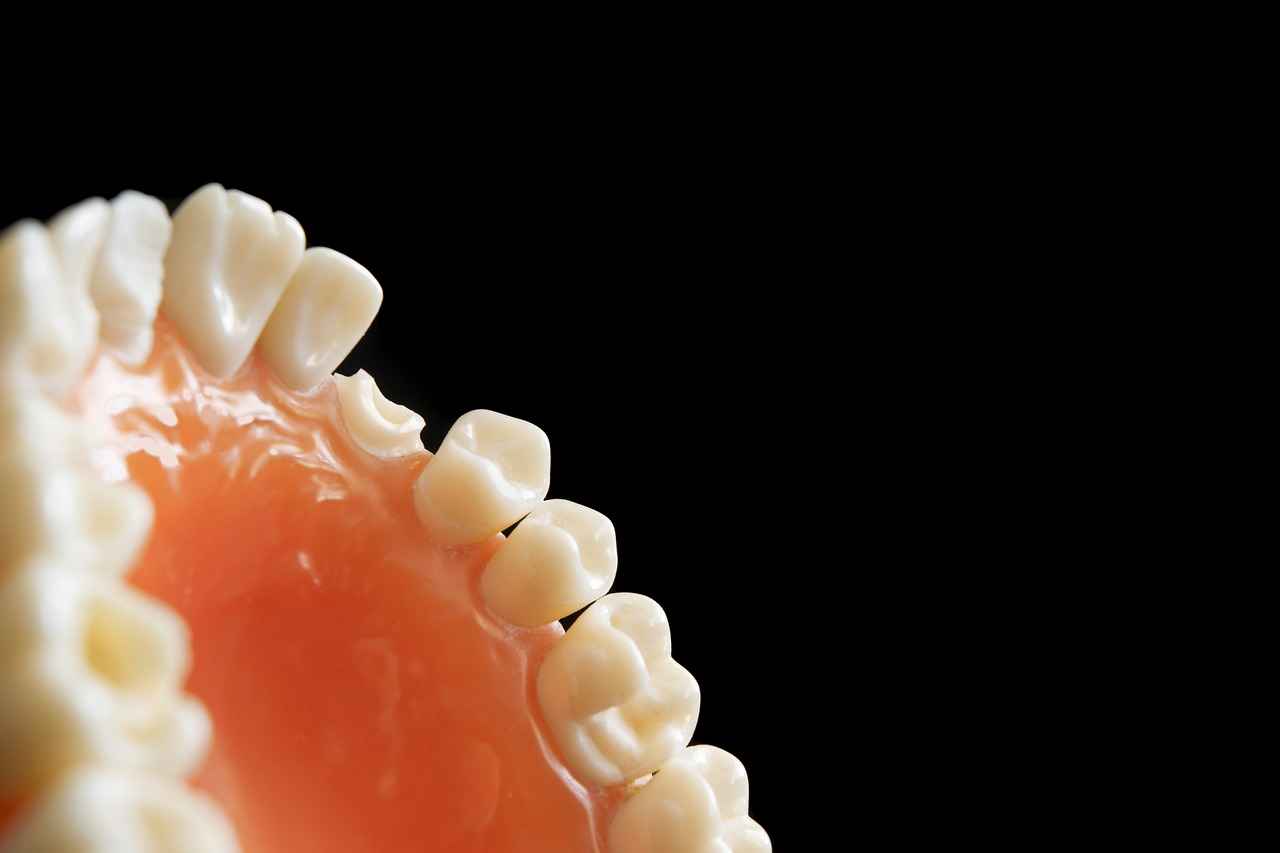This article delves into the financial implications of repairing a chipped tooth and outlines the various treatment options available. Understanding these aspects will empower you to make informed decisions regarding your dental care.
What Are the Common Causes of Chipped Teeth?
Chipped teeth can occur due to several reasons. Some of the most common causes include:
- Trauma: Accidents or sports injuries can lead to chipped teeth.
- Biting Hard Objects: Chewing on ice or hard candies can cause chips.
- Tooth Decay: Weakened teeth due to decay are more susceptible to chipping.
Recognizing these causes can help in preventive measures to avoid future dental issues.
What Are the Treatment Options for a Chipped Tooth?
There are several treatment options available, depending on the severity of the chip:
- Dental Bonding: This is a quick and cost-effective solution for minor chips.
- Porcelain Veneers: Ideal for more significant chips, providing durability and a natural look.
- Crowns: For severely chipped teeth, crowns offer comprehensive protection.
Dental Bonding: A Quick Fix?
Dental bonding involves applying a tooth-colored resin to the chipped area. This procedure not only restores the tooth’s appearance but also its functionality. It is particularly effective for minor chips and can often be completed in a single visit.
How Long Does Dental Bonding Last?
Typically, dental bonding can last between 3 to 10 years, depending on factors such as oral hygiene and lifestyle choices. Regular dental visits can help in prolonging its lifespan.
What Are the Costs Involved?
The average cost of dental bonding ranges from $100 to $400 per tooth, making it an accessible option for many patients seeking immediate repairs.
Veneers: Are They Worth the Investment?
Porcelain veneers are a more durable and aesthetically pleasing solution for chipped teeth. Although they come at a higher price point, their longevity and natural appearance often justify the investment.
How Much Should You Expect to Pay for Repairing a Chipped Tooth?
The cost of repairing a chipped tooth varies significantly based on the treatment method chosen, the location of the dental practice, and the dentist’s fees. Estimates can range from $100 to over $1,500.
Factors Influencing the Cost of Tooth Repair
Several factors can affect the overall cost of repairing a chipped tooth:
- Severity of the Chip: More severe chips may require more complex treatments.
- Materials Used: The choice of materials can significantly influence costs.
- Additional Treatments: If other dental issues are present, this may increase the overall expense.
Insurance Coverage: What to Know
Many dental insurance plans cover a portion of the costs associated with repairing chipped teeth. However, coverage can vary widely, so it’s crucial to check the specifics of your plan.
How Can You Prevent Chipped Teeth in the Future?
Preventive measures are essential in avoiding chipped teeth. Here are some effective strategies:
- Maintaining Good Oral Hygiene: Regular brushing, flossing, and dental check-ups can prevent decay and other issues.
- Avoiding Hard Foods and Habits: Being cautious with hard foods and avoiding teeth grinding can significantly reduce the risk of chipping.
By adopting these practices, you can help ensure your teeth remain healthy and intact.

What Are the Common Causes of Chipped Teeth?
Chipped teeth can be a common dental concern that many people face at some point in their lives. Understanding the underlying causes of chipped teeth is essential for effective prevention and care. By identifying the factors that contribute to this issue, individuals can take proactive steps to protect their dental health.
Chipped teeth can result from a variety of factors, each contributing to the wear and tear that can compromise dental integrity. Here are some of the most common causes:
- Trauma or Injury: Accidents, falls, or sports injuries can lead to significant trauma to the mouth, resulting in chipped or broken teeth. It’s crucial to wear mouthguards during contact sports to minimize the risk of injury.
- Biting Hard Objects: Chewing on hard substances like ice, hard candies, or even non-food items can place excessive pressure on teeth, leading to chips. Being mindful of what you bite into can help preserve your dental health.
- Tooth Decay: Cavities weaken the structural integrity of teeth, making them more susceptible to chipping. Regular dental check-ups and good oral hygiene can help prevent decay and maintain strong teeth.
- Bruxism (Teeth Grinding): Many individuals unknowingly grind their teeth at night, a condition known as bruxism. This habit can wear down tooth enamel and lead to chips. If you suspect you grind your teeth, consult your dentist about potential solutions.
- Age: As we age, our teeth can become more brittle, increasing the likelihood of chips. Older adults should be particularly vigilant about dental care and maintenance.
- Improper Dental Work: Sometimes, previous dental procedures, such as fillings or crowns, may not be done correctly, leading to weak spots in the tooth. Regular follow-ups with your dentist can ensure that any dental work remains solid and effective.
By understanding these common causes, individuals can take proactive measures to protect their teeth. Regular dental visits, proper oral hygiene, and being mindful of habits can significantly reduce the risk of experiencing chipped teeth.
In summary, chipped teeth can arise from various factors, including trauma, dietary choices, and underlying dental conditions. Awareness of these causes not only empowers individuals to take better care of their teeth but also fosters a proactive approach to dental health.

What Are the Treatment Options for a Chipped Tooth?
Chipped teeth are a common dental issue that can arise from various causes, such as accidental trauma, biting hard foods, or even underlying dental problems. Fortunately, there are numerous treatment options available to address this concern, each tailored to the severity of the chip and the specific tooth involved. Below, we will explore the most effective treatments for chipped teeth.
The choice of treatment for a chipped tooth largely depends on the extent of the damage. Here are some of the most common options:
- Dental Bonding: This is often the first line of treatment for minor chips. During this procedure, a tooth-colored resin is applied to the chipped area and then shaped and polished to match the surrounding tooth. Dental bonding is quick, typically completed in a single visit, and is a cost-effective solution, with prices ranging from $100 to $400.
- Veneers: For more significant chips or those affecting the front teeth, porcelain veneers may be recommended. These thin shells are custom-made to cover the front of the tooth, providing a natural appearance and excellent durability. While they are more expensive, costing between $800 to $2,500 per tooth, they offer a long-lasting solution.
- Crowns: If the chip is extensive and compromises the tooth’s structure, a dental crown may be necessary. A crown encases the entire tooth, restoring its shape and function. The cost for crowns can range from $500 to $3,000, depending on the material used and the complexity of the procedure.
- Root Canal Treatment: In cases where the chip exposes the tooth’s pulp, a root canal may be required to remove infected tissue. After the procedure, a crown is typically placed to protect the tooth. This treatment can be more costly, often exceeding $1,000.
- Orthodontic Treatment: If the chipped tooth is a result of misalignment, orthodontic treatment may be necessary to correct the underlying issue. This can involve braces or aligners, with costs varying widely based on the treatment duration and complexity.
The longevity of each treatment can vary:
- Dental Bonding: Typically lasts 3 to 10 years, depending on care and habits.
- Veneers: Can last 10 to 15 years with proper maintenance.
- Crowns: Generally last 10 to 30 years, depending on the material and care.
Several factors can impact the overall cost of repairing a chipped tooth:
- Severity of the Chip: More extensive damage typically requires more complex and costly treatments.
- Material Used: The choice between composite resin, porcelain, or metal can significantly affect the price.
- Location: Dental costs can vary by region and the dentist’s expertise.
- Insurance Coverage: Some treatments may be partially covered by dental insurance, which can help mitigate costs.
In summary, when faced with a chipped tooth, it’s crucial to consult with a dental professional to determine the best treatment option. Each method has its benefits and costs, and understanding these can aid in making an informed decision for your dental health.
Dental Bonding: A Quick Fix?
Dental bonding is increasingly recognized as a popular and cost-effective solution for addressing minor chips in teeth. This procedure involves the application of a tooth-colored resin directly to the affected area, effectively restoring both the appearance and function of the tooth. But how does this process work, and what should you know before considering it?
Dental bonding is a cosmetic dental procedure that uses a durable resin to repair chips, cracks, or discoloration in teeth. The resin is carefully matched to the natural color of your teeth, ensuring a seamless blend. The process is relatively quick, typically completed in a single visit to the dentist.
- Preparation: The dentist will first clean the tooth and may apply a mild etching solution to help the resin adhere better.
- Application: The tooth-colored resin is applied to the chipped area and shaped to match the natural contours of the tooth.
- Curing: A special light is used to harden the resin, ensuring a strong bond.
- Finishing Touches: Finally, the dentist will polish the bonded area to match the rest of your tooth.
Typically, dental bonding can last between 3 to 10 years, depending on factors such as oral hygiene practices and lifestyle choices. Regular dental check-ups and proper care can significantly enhance the longevity of the bonding.
The cost of dental bonding generally ranges from $100 to $400 per tooth. This price can vary based on the complexity of the repair and the dentist’s experience. Compared to other cosmetic options, such as veneers, dental bonding is a more affordable choice for many patients.
- Quick Procedure: Most bonding procedures can be completed in under an hour.
- Minimal Preparation: Unlike crowns or veneers, bonding typically requires little to no alteration of the natural tooth structure.
- Versatile Solution: It can be used for various cosmetic issues, including chips, gaps, and discoloration.
While dental bonding offers numerous benefits, there are some potential drawbacks to consider:
- Staining: The resin can stain over time, especially if you consume coffee, tea, or tobacco.
- Durability: Bonding is less durable than crowns or veneers and may require more frequent repairs.
Dental bonding is suitable for individuals with minor chips or cosmetic imperfections. It’s an excellent option for those seeking a quick and affordable fix without undergoing more invasive procedures. However, individuals with significant damage may require alternative treatments.
Dental bonding serves as an effective and cost-efficient solution for minor dental chips. With a relatively quick application process and the ability to blend seamlessly with natural teeth, it remains a popular choice among patients. If you are looking for a way to enhance your smile without breaking the bank, dental bonding may just be the right option for you.
How Long Does Dental Bonding Last?
Dental bonding is a widely used cosmetic dental procedure designed to repair minor imperfections, such as chips or cracks in teeth. Many patients often wonder, Understanding the longevity of dental bonding is crucial for anyone considering this treatment, as it can significantly impact your dental health and finances.
Generally, the lifespan of dental bonding ranges from 3 to 10 years. This variability is influenced by several factors, including oral hygiene, lifestyle choices, and the specific location of the bonded tooth. For instance, dental bonding on front teeth, which are more visible and often subjected to more wear, may require more frequent touch-ups compared to bonding on molars.
- Oral Hygiene Practices: Maintaining a consistent oral hygiene routine, including regular brushing and flossing, can significantly enhance the durability of dental bonding. Patients who neglect their dental care are likely to experience a shorter lifespan for their bonding.
- Lifestyle Choices: Habits such as smoking or excessive consumption of staining beverages like coffee and red wine can lead to discoloration and degradation of the bonding material.
- Dietary Habits: Biting hard foods or using teeth as tools can place undue stress on dental bonding, potentially causing it to chip or wear down more quickly.
Regular dental check-ups are essential for maintaining the longevity of dental bonding. During these visits, your dentist can assess the condition of the bonding and make recommendations for care or replacements if necessary. Early intervention can prevent more extensive damage to the underlying tooth structure, saving you time and money in the long run.
Be alert for the following signs that may indicate your dental bonding requires professional evaluation:
- Discoloration: If you notice your bonded tooth has become noticeably stained or discolored, it may be time for a touch-up.
- Chipping or Cracking: Any visible damage to the bonding material can compromise its effectiveness and aesthetic appeal.
- Increased Sensitivity: If you experience heightened sensitivity in the bonded tooth, it could signal that the bonding is wearing down or that there are underlying issues.
While dental bonding is an effective and cost-efficient solution for minor chips, it’s essential to consider other options such as veneers or crowns for more severe damage. Veneers, for instance, can provide a longer-lasting solution but come at a higher cost. Understanding your options will help you make an informed decision tailored to your specific needs.
In conclusion, the longevity of dental bonding is influenced by a combination of personal habits and professional care. By prioritizing good oral hygiene, making informed lifestyle choices, and attending regular dental visits, you can maximize the lifespan of your dental bonding and maintain a healthy, beautiful smile.
What Are the Costs Involved?
When considering dental bonding as a solution for a chipped tooth, it is essential to understand the cost factors involved. Dental bonding is a popular choice for many patients due to its affordability and quick application process. The average cost of dental bonding typically ranges from $100 to $400 per tooth, making it an accessible option for those seeking immediate repairs to minor dental issues.
Dental bonding is often favored for its affordability compared to other cosmetic dental procedures. Unlike crowns or veneers, which can cost significantly more, bonding provides a quick fix without breaking the bank. The procedure involves applying a tooth-colored resin to the chipped area, which is then shaped and polished to match the surrounding teeth. This not only restores the tooth’s appearance but also its function.
Several factors can affect the overall cost of dental bonding:
- Location of the Dental Practice: Prices may vary depending on the geographic location and the dentist’s experience.
- Severity of the Chip: More extensive repairs may require additional materials and time, increasing the cost.
- Additional Treatments: If the tooth requires further treatment, such as decay removal, this will add to the total cost.
In addition to the bonding itself, patients may need to factor in costs for an initial consultation, X-rays, or follow-up visits. Most dentists will provide a detailed estimate after assessing the tooth, which can help you understand the full scope of expenses.
Many dental insurance plans cover a portion of the costs associated with dental bonding. However, coverage can vary widely, so it is crucial to consult with your insurance provider to understand your benefits. Some plans may cover cosmetic procedures like bonding only if they are deemed necessary for dental health.
While dental bonding is a cost-effective solution, other options such as crowns or veneers may be more suitable for severe chips or aesthetic concerns. Crowns can range from $800 to $1,500 per tooth, while veneers can cost between $500 to $2,500 per tooth. Patients should weigh the pros and cons of each option and consider their budget when making a decision.
The dental bonding process is relatively straightforward and usually completed in a single visit. The dentist will prepare the tooth by cleaning it and applying a special gel to help the resin adhere. After the resin is applied and shaped, a curing light is used to harden it. Finally, the bonded area is polished to blend seamlessly with the natural tooth.
In summary, while the cost of dental bonding can range from $100 to $400 per tooth, this treatment offers a practical solution for those looking to repair minor chips quickly and affordably. By understanding the factors that influence pricing and considering insurance coverage, patients can make informed decisions that align with their dental health needs.
Veneers: Are They Worth the Investment?
When considering options for repairing a chipped tooth, porcelain veneers stand out as a premium choice. They not only provide a solution for aesthetic concerns but also offer durability and a natural appearance. Unlike other cosmetic treatments, veneers are designed to withstand the wear and tear of daily use, making them a long-lasting investment for your smile.
Porcelain veneers are thin shells made from high-quality ceramic material that are custom-made to fit over the front surface of your teeth. They are meticulously crafted to match the natural color and shape of your existing teeth, ensuring a seamless blend with your smile.
While there are several options available for repairing chipped teeth, including dental bonding and crowns, porcelain veneers offer unique advantages:
- Natural Appearance: The translucency of porcelain mimics the look of natural tooth enamel, providing a lifelike finish.
- Stain Resistance: Porcelain is highly resistant to staining, maintaining its color over time, unlike composite materials.
- Durability: With proper care, veneers can last 10 to 15 years or longer, making them a cost-effective solution in the long run.
The cost of porcelain veneers can vary significantly based on several factors, including the dentist’s experience, geographical location, and the number of veneers needed. On average, patients can expect to pay between $800 and $2,500 per tooth. While this investment may seem high, many find the long-term benefits justify the initial expense.
Before deciding on porcelain veneers, it’s essential to consult with a dental professional. They will assess your dental health and discuss your goals to determine if veneers are the best option for you. Factors to consider include:
- Dental Health: If you have significant decay or gum disease, these issues should be addressed before considering veneers.
- Budget: Evaluate your financial situation and consider whether the investment aligns with your long-term dental goals.
- Lifestyle: If you grind your teeth or have a history of dental issues, your dentist may recommend alternative treatments.
The process typically involves several steps:
- Consultation: Discuss your goals and undergo a dental examination.
- Preparation: Your dentist will remove a small amount of enamel from your teeth to accommodate the veneers.
- Impressions: Custom molds of your teeth will be taken to create the veneers.
- Placement: Once ready, the veneers are bonded to your teeth using a special adhesive.
To ensure the longevity of your veneers, it’s essential to maintain good oral hygiene. Regular brushing and flossing, along with routine dental check-ups, will help keep your veneers and natural teeth in optimal condition. Avoiding hard foods and habits like teeth grinding can also prevent damage.
In summary, while porcelain veneers represent a significant investment, they offer a durable and aesthetically pleasing solution for chipped teeth. With proper care, they can enhance your smile for many years, making them a worthwhile consideration for those seeking a long-lasting cosmetic enhancement.

How Much Should You Expect to Pay for Repairing a Chipped Tooth?
When faced with a chipped tooth, one of the first questions that arise is, “How much should you expect to pay for repairing a chipped tooth?” The answer isn’t straightforward, as costs can vary significantly based on several factors. This article will delve into the various aspects that influence the price of tooth repair, helping you navigate your options effectively.
The cost of repairing a chipped tooth can range from $100 to over $1,500. Several critical factors contribute to this wide range:
- Severity of the Chip: Minor chips may only require cosmetic fixes like dental bonding, while more severe damage could necessitate crowns or veneers.
- Location of the Tooth: Front teeth typically cost more to repair due to their visibility and the aesthetic considerations involved.
- Dental Practice Location: Dental fees can vary based on geographic location, with urban areas generally charging more than rural settings.
- Type of Treatment: Different treatment options come with varying costs. For instance, dental bonding is generally less expensive than veneers or crowns.
- Experience of the Dentist: More experienced dentists or specialists may charge higher fees for their services.
Understanding your options is crucial in determining potential costs. Some common treatments include:
- Dental Bonding: This is a quick and cost-effective solution for minor chips, typically costing between $100 and $400.
- Porcelain Veneers: These provide a more durable and aesthetically pleasing solution, with costs ranging from $500 to $1,500 per tooth.
- Crowns: If the chip is severe, a crown might be necessary, costing between $800 and $3,000 depending on the material used.
Dental insurance can significantly reduce your out-of-pocket expenses. However, it’s essential to check your specific plan as coverage varies widely. Some plans may cover a portion of the costs associated with repairing chipped teeth, while others may not.
Before your appointment, consider the following:
- Research Your Options: Familiarize yourself with the treatment options and their associated costs.
- Consult Your Insurance Provider: Understand what your insurance covers to avoid unexpected expenses.
- Prepare Questions: Write down any questions you have for your dentist regarding the treatment process and costs.
Ignoring a chipped tooth can lead to further complications, including tooth decay and increased sensitivity. It’s vital to address the issue promptly to prevent more extensive and expensive treatments down the line. Regular dental check-ups and maintaining good oral hygiene can also help mitigate potential issues.
In summary, the cost of repairing a chipped tooth can vary widely based on several factors, including the severity of the damage and the type of treatment required. By understanding your options and preparing adequately, you can make informed decisions about your dental care.
Factors Influencing the Cost of Tooth Repair
When it comes to dental care, understanding the cost of repairing a chipped tooth is crucial for making informed decisions. The overall expense can vary significantly based on several factors. This article delves into the various elements that influence the cost of tooth repair, helping you prepare for potential dental expenses.
The first factor to consider is the severity of the chip. Minor chips may only require simple cosmetic procedures, while more severe damage could necessitate extensive treatments. For instance, a small chip might be repaired with dental bonding, which is often less expensive, typically ranging from $100 to $400. However, a larger chip may require a crown or veneer, which can cost anywhere from $800 to over $1,500.
The materials chosen for the repair also play a significant role in determining the overall cost. Common materials include:
- Composite Resins: These are often used for dental bonding and are generally more affordable.
- Porcelain: Used for veneers and crowns, porcelain offers durability and a natural appearance but comes at a higher price.
- Gold or Metal Alloys: While these materials are durable, they can also be quite expensive, often exceeding $1,000.
The location of the chipped tooth can also influence repair costs. Front teeth often require more aesthetic consideration, which can lead to higher expenses. Conversely, chips on molars might be treated with less expensive solutions since they are not as visible. The average cost for repairing a front tooth can be significantly higher than for a back tooth.
In some cases, additional treatments may be required to address underlying issues, which can further increase costs. For instance, if a chip is a result of tooth decay, the dentist may need to perform a filling or root canal before repairing the chip. This could add anywhere from $200 to $1,500 to your total bill.
The cost of dental services can vary based on geographical location. Urban areas with a higher cost of living often have dentists who charge more for their services. It’s essential to research local dental practices and compare prices to find a suitable option within your budget.
Dental insurance can significantly affect out-of-pocket expenses. Many plans cover a portion of the costs associated with repairing chipped teeth. However, coverage can vary widely, so it’s crucial to check your specific plan details. Some plans may cover basic repairs but not cosmetic procedures, which can leave you with unexpected expenses.
Finally, the initial consultation and diagnosis by your dentist can also influence the overall cost. A thorough examination may reveal additional issues that need addressing, potentially increasing the final bill. It’s advisable to discuss all potential costs upfront with your dental provider to avoid surprises later.
In summary, several factors can significantly influence the cost of repairing a chipped tooth, including the severity of the chip, the materials used, the tooth’s location, and any additional treatments required. By understanding these elements, you can better prepare for the financial aspect of your dental care and ensure that you receive the treatment that best suits your needs.
Insurance Coverage: What to Know
When it comes to dental care, understanding your insurance coverage is crucial. Many people wonder, “Does my dental insurance cover the costs of repairing a chipped tooth?” The answer is not straightforward, as it largely depends on your specific plan and the nature of the treatment required.
Dental insurance typically falls into two categories: preventive and restorative care. Most plans cover preventive services such as routine check-ups and cleanings at a higher percentage. However, coverage for restorative procedures, like repairing chipped teeth, can vary significantly.
Generally, dental insurance plans may cover a portion of the costs associated with repairing chipped teeth. Common treatments include:
- Dental Bonding: Often considered a cosmetic procedure, bonding may be partially covered depending on the plan.
- Veneers: These are typically viewed as cosmetic enhancements, and coverage may be limited.
- Crowns: If the chip is severe, a crown may be necessary, and this is more likely to be covered by insurance.
Several factors can influence the extent of your coverage:
- Your Plan Type: HMO, PPO, and indemnity plans have different coverage levels.
- Pre-Existing Conditions: Some plans may not cover treatments for conditions that existed before enrollment.
- Annual Maximums: Most plans have a cap on how much they will pay for dental care each year, which can affect your out-of-pocket expenses.
To fully understand your coverage for repairing a chipped tooth, follow these steps:
- Review Your Policy: Take the time to read through your dental insurance policy to understand what is covered.
- Contact Your Insurer: Reach out to your insurance provider for clarification on specific treatments and coverage limits.
- Consult Your Dentist: Your dentist’s office can often assist in verifying your coverage and may even handle the claims process for you.
If you find that your insurance plan does not cover the repair of your chipped tooth, consider the following options:
- Payment Plans: Many dental offices offer financing options to help manage costs.
- Discount Plans: Some dental discount plans can provide savings on services not covered by insurance.
- Health Savings Accounts: If you have an HSA or FSA, these funds can often be used for dental expenses.
In summary, while dental insurance can help alleviate some of the costs associated with repairing a chipped tooth, it is essential to check the specifics of your plan. By understanding your coverage, consulting with your dentist, and exploring alternative payment options, you can make informed decisions regarding your dental care.

How Can You Prevent Chipped Teeth in the Future?
Preventing chipped teeth is essential for maintaining a healthy smile and avoiding costly dental repairs. By implementing a few simple lifestyle changes and adhering to proper dental care practices, you can significantly reduce the risk of future chips and fractures. This article will explore effective strategies to help you keep your teeth intact.
Preventive care is the foundation of good oral health. Regular visits to your dentist allow for early detection of potential issues, such as tooth decay or gum disease, which can lead to weakened teeth. By addressing these problems promptly, you can avoid situations that may result in chipped teeth.
- Brush Twice Daily: Use a fluoride toothpaste and brush your teeth at least twice a day. This helps remove plaque and strengthens enamel, making your teeth less susceptible to chipping.
- Floss Daily: Flossing removes food particles and plaque between teeth, preventing decay that can weaken tooth structure.
- Regular Dental Check-ups: Schedule visits to your dentist every six months for cleanings and check-ups. Your dentist can identify issues early and recommend treatments to protect your teeth.
Being mindful of what you eat can play a significant role in preventing chipped teeth. Here are some tips:
- Limit Hard Foods: Avoid chewing on ice, hard candies, or other tough foods that can put excessive pressure on your teeth.
- Quit Bad Habits: If you grind your teeth at night, consider using a mouthguard. Teeth grinding can weaken enamel and lead to chips.
If you participate in contact sports, wearing a mouthguard is crucial. Mouthguards provide an extra layer of protection, absorbing impacts that could otherwise chip or fracture your teeth.
Stress can contribute to habits like teeth grinding and jaw clenching. Engaging in stress-reducing activities such as exercise, meditation, or yoga can help alleviate these issues, thereby protecting your teeth from damage.
Your diet plays a vital role in maintaining strong teeth. Incorporate foods rich in calcium and vitamin D, such as dairy products, leafy greens, and fatty fish. These nutrients help strengthen your teeth and bones, making them less prone to chipping.
By following these preventive measures, you can significantly lower the risk of chipped teeth. Maintaining good oral hygiene, avoiding hard foods, protecting your teeth during sports, managing stress, and eating a balanced diet are all crucial steps in preserving your dental health. Remember, a proactive approach to oral care not only saves you from discomfort but also from the financial burden of dental repairs.
Maintaining Good Oral Hygiene
Maintaining good oral hygiene is essential for a healthy smile and overall well-being. It involves a combination of daily practices and regular professional care that work together to prevent dental issues such as tooth decay, gum disease, and chipped teeth. In this section, we will explore the importance of oral hygiene and provide practical tips to ensure your teeth remain strong and healthy.
Good oral hygiene is the foundation of dental health. It helps eliminate plaque, a sticky film of bacteria that forms on teeth and can lead to cavities and gum disease if not removed. Regular care not only keeps your mouth clean but also contributes to your overall health by reducing the risk of systemic diseases linked to poor oral hygiene.
Brushing your teeth at least twice a day is crucial. Use a fluoride toothpaste and a soft-bristled toothbrush to effectively clean your teeth. Brushing helps to remove food particles and plaque, preventing decay and maintaining enamel strength. It’s essential to brush for at least two minutes, ensuring you cover all surfaces of your teeth.
Flossing is often overlooked but is a vital part of oral hygiene. It removes plaque and food particles from between the teeth and under the gumline, areas that a toothbrush may miss. Daily flossing can significantly reduce the risk of gum disease and cavities. Remember to use a gentle sawing motion and avoid snapping the floss to prevent gum injury.
Even with diligent brushing and flossing, it’s important to schedule regular dental check-ups. Dentists can identify early signs of tooth decay or gum disease and provide professional cleanings to remove tartar buildup. These visits are crucial for maintaining your oral health and catching issues before they become serious.
- Prevention of Tooth Decay: Keeping your teeth clean helps prevent cavities.
- Reduced Risk of Gum Disease: Good hygiene practices lower the chances of developing gingivitis or periodontitis.
- Enhanced Overall Health: Oral health is linked to systemic conditions such as heart disease and diabetes.
- Improved Self-Esteem: A healthy smile boosts confidence and social interactions.
1. Brush twice a day for at least two minutes.2. Floss daily to clean between teeth.3. Use an antibacterial mouthwash to reduce bacteria.4. Limit sugary snacks and beverages.5. Stay hydrated to promote saliva production.6. Avoid tobacco products to protect gum health.
Maintaining good oral hygiene is essential for preventing issues such as tooth decay and chipped teeth. By incorporating daily brushing, regular flossing, and professional dental check-ups into your routine, you can ensure your teeth remain healthy and strong. Remember, a proactive approach to oral care not only preserves your smile but also contributes to your overall health.
Avoiding Hard Foods and Habits
Maintaining the health and integrity of your teeth is essential for overall well-being. One of the most effective strategies to achieve this is by being mindful of the foods you consume and avoiding harmful habits. In this section, we will delve into why these practices are crucial in preventing chipped teeth and how they contribute to long-term dental health.
Hard foods can pose a significant risk to your dental health. Foods such as ice, hard candies, and certain nuts can exert excessive pressure on your teeth. This pressure can lead to chips or fractures, especially in teeth that are already weakened by decay or previous dental work. By opting for softer alternatives, you can greatly reduce the risk of damaging your teeth.
Bruxism, or teeth grinding, is a common habit that can lead to serious dental issues. Many people grind their teeth unconsciously, often during sleep. This habit can wear down enamel and cause chips over time. Recognizing the signs of bruxism, such as jaw pain or worn-down teeth, is the first step towards prevention. If you suspect you grind your teeth, consulting a dental professional for advice on protective measures, such as a night guard, is highly recommended.
- Choose Softer Foods: Incorporate softer foods into your diet, such as yogurt, cooked vegetables, and ripe fruits.
- Stay Hydrated: Drink plenty of water to help wash away food particles and bacteria that can weaken teeth.
- Manage Stress: Since stress can lead to teeth grinding, practicing relaxation techniques like meditation or yoga may help.
- Regular Dental Check-ups: Schedule routine visits to your dentist to monitor your dental health and address any issues early.
The foods you eat play a crucial role in maintaining strong and healthy teeth. A balanced diet rich in vitamins and minerals, particularly calcium and vitamin D, can strengthen your teeth and bones. Foods high in sugar, on the other hand, can lead to tooth decay, which weakens teeth and makes them more susceptible to chipping.
Good oral hygiene is essential in preventing chipping and other dental issues. Regular brushing and flossing help remove plaque and food particles that can cause decay. Additionally, using fluoride toothpaste can strengthen enamel, making your teeth more resistant to damage. It is also advisable to use a soft-bristled toothbrush to avoid unnecessary wear on your teeth.
By being mindful of the foods you eat and avoiding harmful habits like teeth grinding, you can significantly lower the chances of chipping your teeth. These preventive measures not only preserve the integrity of your teeth but also contribute to your overall dental health. Remember, taking proactive steps today can lead to a healthier smile tomorrow.
Frequently Asked Questions
- What should I do if I chip my tooth?
If you chip your tooth, it’s important to stay calm. Rinse your mouth with warm water to clean the area and apply a cold compress to reduce swelling. Contact your dentist as soon as possible to discuss treatment options.
- Can a chipped tooth heal on its own?
Unfortunately, a chipped tooth won’t heal on its own. While minor chips may not cause immediate problems, it’s best to get it checked by a dentist to prevent further damage or decay.
- Are there any home remedies for a chipped tooth?
While there are no effective home remedies to fix a chipped tooth, you can manage discomfort with over-the-counter pain relievers. However, visiting a dentist is essential for a proper solution.
- How long does it take to repair a chipped tooth?
The time required to repair a chipped tooth depends on the treatment method. Dental bonding can often be completed in one visit, while veneers may require multiple appointments for fitting and placement.
- Will my dental insurance cover the cost of repairing a chipped tooth?
Many dental insurance plans do cover a portion of the costs associated with repairing chipped teeth. It’s best to check with your insurance provider to understand your specific coverage details.




